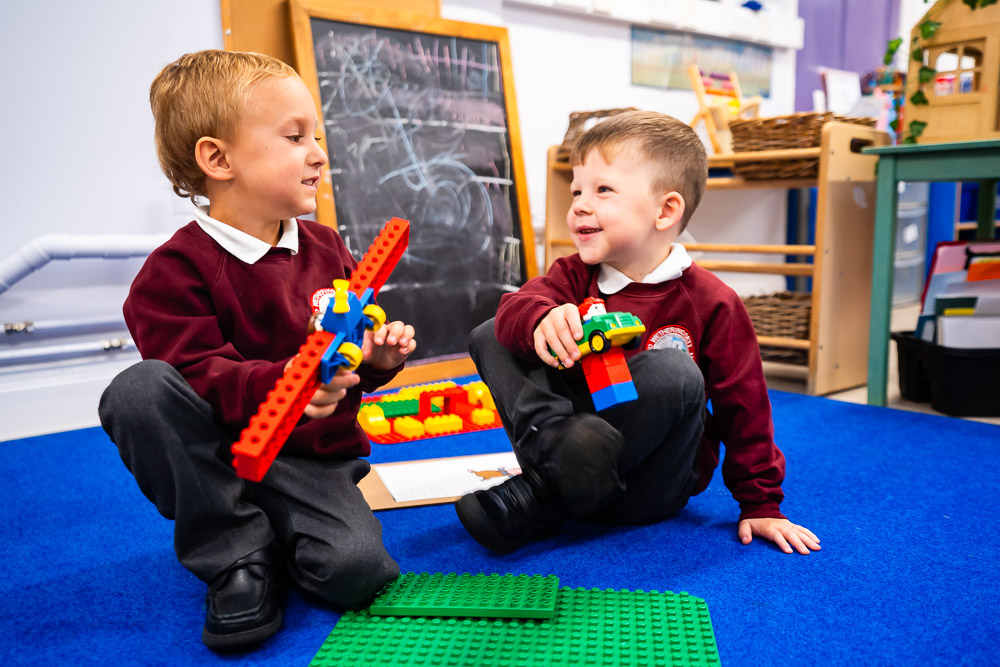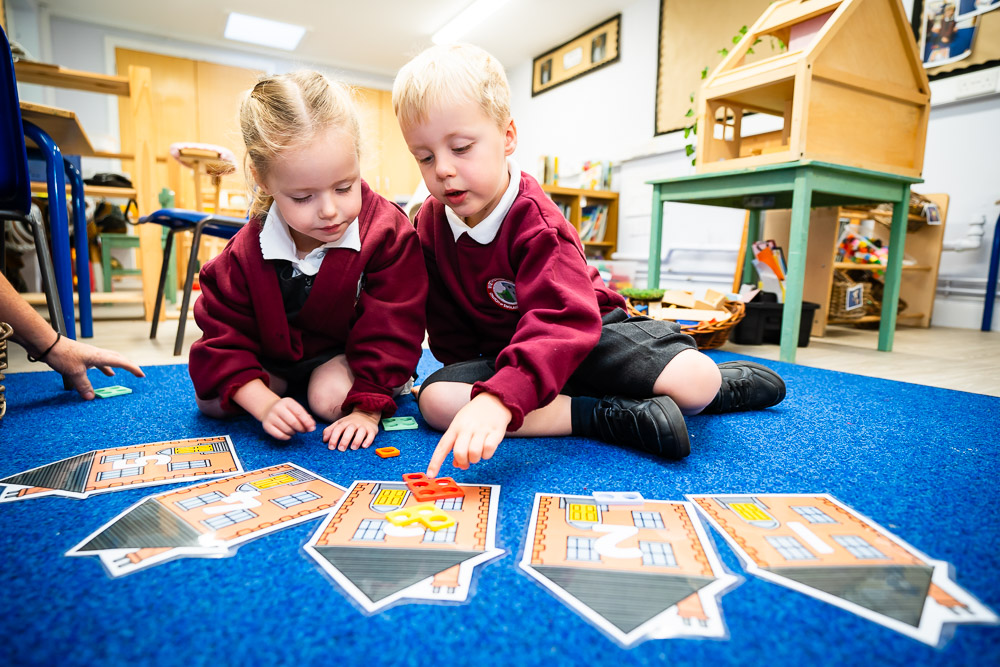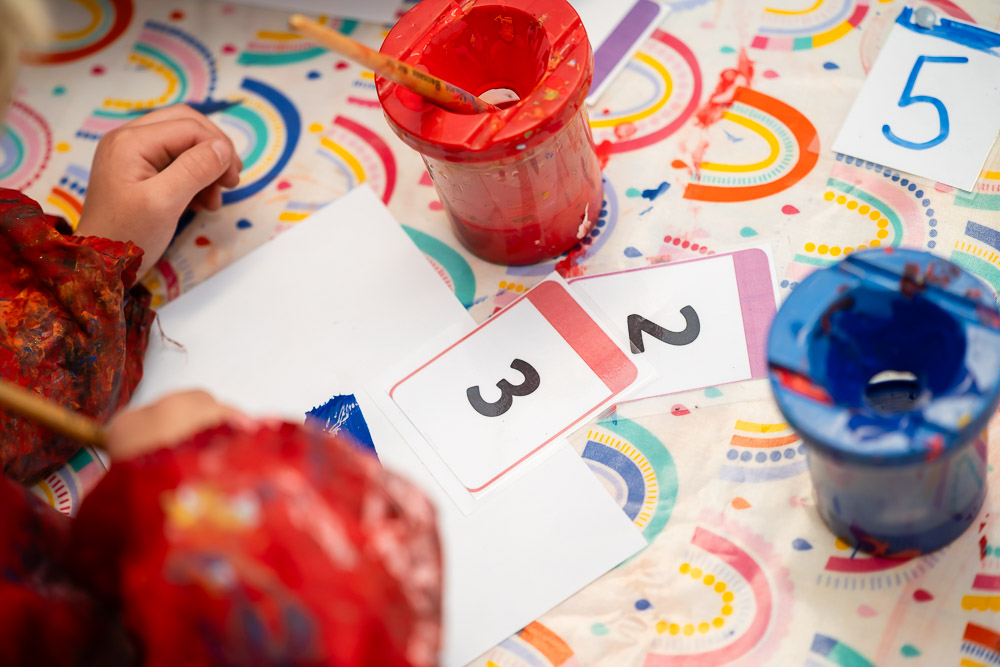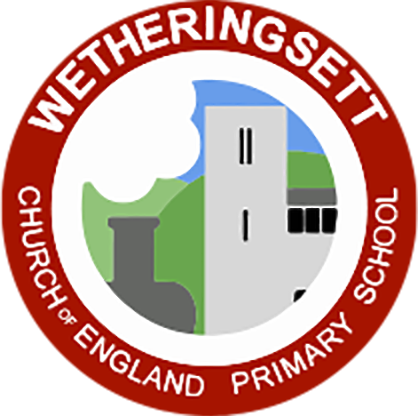Early Years Foundation Stage (EYFS)
 EYFS CURRICULUM
EYFS CURRICULUM
The Early Years Foundation Stage (EYFS) is where children begin their journey through school.
Through play and purposeful activities, the Early Years curriculum is designed to encourage learning which builds on and extends your child’s existing knowledge, experiences and interests in a caring and stimulating environment. Children learn by playing and exploring, being active, and through creative and critical thinking which takes place both indoors and outdoors. We ensure each child is reaching their full potential by observing and extending their play and encouraging them to do their best at every opportunity. The adults in the classroom are responsive to the children’s play, interactions and thinking and as a result they facilitate learning by listening, guiding, explaining, questioning and helping the children to reflect on their learning.
In Reception your child will be learning skills, acquiring new knowledge and demonstrating their understanding through 7 areas of learning and development, as set out by the EYFS Framework.
understanding through 7 areas of learning and development, as set out by the EYFS Framework.
The three prime areas are:
Personal, Social and Emotional Development
PSED is critical for young children in all aspects of their lives and gives them the best opportunity for success in the other areas of learning. We provide experiences where the children can build relationships with their peers and adults, learn about rules and behaviour, gain an awareness of their feelings and of others and their feelings, learn how to care for themselves and begin to learn about their own and other cultures.
 Communication and Language
Communication and Language
This area helps children develop all the necessary skills in getting ready to read, write and communicate effectively when they are older. We use lots of different approaches including action rhymes, stories with repeated language, listening to story CDs. These opportunities enable children to develop their listening and attention, ability to speak clearly and widen their understanding of words. Communication and Language is an aspect of the curriculum that is infused across all areas of learning.
Physical Development
Physical development in Reception is about improving skills of coordination, control, manipulation and movement. It helps children to gain confidence in their ability, enabling them to feel the positive benefits of being healthy and active. They consider the importance of keeping healthy and identify the things, which contribute to this. Fine motor skills and hand-eye coordination form an equally important part of Physical development. Children learn to use a range of small and large equipment safely and with increasing control.
These prime areas are those most essential for your child’s healthy development and future learning and will help them to develop skills in the four specific areas which are:
- Literacy
- Mathematics
- Understanding of the World
- Expressive Arts and Design

Characteristics of Effective Learning
The curriculum also takes account of children’s learning not just in the 7 Areas of Learning and Development, but also in how they see themselves as learners and how they are building the strong foundations for lifelong learning. These are described in the Characteristics of Effective Learning and these are an integral part of our curriculum here at Wetheringsett.
The 3 Characteristics of Effective Learning:
Playing and Exploring
Children investigate and experience things and ‘have a go’.
Active learning
Children concentrate and keep on trying if they encounter difficulties. They enjoy their achievements.
Creating and Thinking Critically
Children have and develop their own ideas, make links between ideas and develop strategies for doing things.
 The Learning Journey
The Learning Journey
Each child in the EYFS has a ‘Learning Journey’, which is a record of experiences and learning presented through photographs and observations made of your child at school. All staff working with your child will add to the file and use it to identify the next steps in your child’s learning. At Wetheringsett, we use an online version of the file, called ‘Tapestry’, which allows parents to access their child’s file from home, and add to it with their own comments and photographs etc. At the end of the year, parents are given their child’s learning journey as a PDF file to keep, share and treasure.
